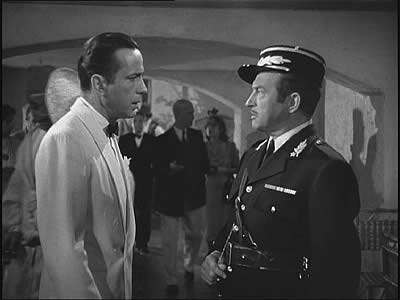Here’s an interesting passage I noticed in an article in the New York Times Magazine, which was mostly about companies trying to sell fancy new mattresses.
The story of our ruined sleep, in virtually every telling I've heard, begins with Thomas Edison: electric light destroyed the sanctity of night. Given more to do and more opportunity to do it, we gave sleep shorter and shorter shrift. But the sleep that we're now trying to reclaim may never have been ours to begin with. It's a myth,
A. Roger Ekirch, a professor of history at Virginia Tech, told me. And it's a myth that even some sleep experts today have bought into.
… More surprising still, Ekirch reports that for many centuries, and perhaps back to Homer, Western society slept in two shifts. People went to sleep, got up in the middle of the night for an hour or so, and then went to sleep again. Thus night — divided into a first sleep
and second sleep
— also included a curious intermission. There was an extraordinary level of activity,
Ekirch told me. People got up and tended to their animals or did housekeeping. Others had sex or just lay in bed thinking, smoking a pipe, or gossiping with bedfellows. Benjamin Franklin took cold-air baths,
reading naked in a chair.
Our conception of sleep as an unbroken block is so innate that it can seem inconceivable that people only two centuries ago should have experienced it so differently. Yet in an experiment at the National Institutes of Health a decade ago, men kept on a schedule of 10 hours of light and 14 hours of darkness — mimicking the duration of day and night during winter — fell into the same, segmented pattern. They began sleeping in two distinct, roughly four-hour stretches, with one to three hours of somnolence — just calmly lying there — in between. Some sleep disorders, namely waking up in the middle of the night and not being able to fall asleep again, may simply be this traditional pattern, this normal pattern, reasserting itself,
Ekirch told me. It's the seamless sleep that we aspire to that's the anomaly, the creation of the modern world.
… Our peculiar preference for one well-organized hunk of sleep likely evolved as a corollary to our expectation of uninterrupted wakefulness during the day — as our lives came to be governed by a single, stringent clock. Eluned Summers-Bremner, author of the forthcoming Insomnia: A Cultural History, explains that in the 18th century, we start overvaluing our waking time, and come to see our sleeping time only as a way to support our waking time.
Consequently, we begin trying to streamline sleep, to get it done more economically: We should lie down and go out right away so we can get up and get to the day right away.
She describes insomniacs as having a ruthless ambition to do just this, wanting to administer sleep as an efficiency expert normalizes the action in a factory. Certainly all of us, after a protracted failure to fall asleep for whatever reason, have turned solemnly to our alarm clocks and performed that desperate arithmetic: If I fall asleep right now, I can still get four hours.
Nevertheless, while it may be at odds with our history and even our biology, lie-down-and-die is the only practical model for our lifestyle. Unless we overhaul society to tolerate all schedules and degrees of sleepiness and attentiveness, we are stuck with that ideal.
— Jon Mooallem, New York Times Magazine (2007-11-18): The Sleep-Industrial Complex
Besides grousing about one of my linguistic pet peeves — the sloppy misuse of the idiom ____________-industrial complex,
the only other thing that I’d like to add is that filing the institutions that currently structure most Americans’ sleep patterns under the vague label of our lifestyle
tends to obscure the issue. Depending on your age, the two main institutions that regiment your sleeping schedule are either (1) school, or (2) your job. The first has little to do with lifestyle choices; it’s something that’s forced on children by both their parents and by the government for a good 10-12 years of their lives. After a decade or more of forced training, the job you take is nevertheless a matter of adult choices. But the economic and political environment that structures and constrains those choices — and tends to favor centralized, regimented, official forms of employment not only through cultural prejudice but also through government-enforced subsidy and monopoly — deserves much more critical scrutiny than the term lifestyle
conveys. In both cases, the daily schedules that we keep are no better described as an adopted style
than is a straightjacket.


